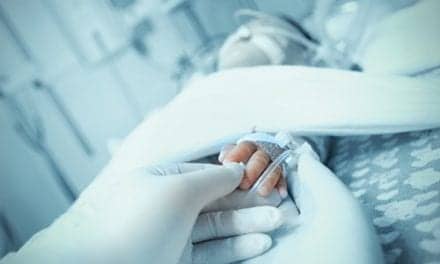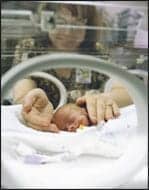Project HOPE, an international health education and humanitarian aid organization, has launched its 2011 nine-country mission to provide health education and medical assistance to communities in Central and South America and the Caribbean. On board the ship is Tracey Kunkel, HOPE Medical Director, an operating room nurse from Pennsylvania, who is bringing the American Academy of Pediatrics (AAP) “Helping Babies Breathe” initiative to community health aides during the 5-month Continuing Promise mission.
Helping Babies Breathe is a neonatal resuscitation curriculum for use in resource-limited circumstances in developing countries, according to the AA P. The initiative focuses on “The Golden Minute” after birth when a newborn is not breathing. The curriculum emphasizes skilled attendance at birth, assessment of every baby, temperature support, stimulation to breathe, and assisted ventilation as needed, all within the first 60 seconds after birth. The program aims to meet the World Health Organization’s goal to cut the worldwide child mortality rate by two-thirds by 2015.
Traveling aboard the US Navy hospital ship, the USNS Comfort, the HOPE medical volunteers will stop at ports in Jamaica, Ecuador, Costa Rica, Columbia, El Salvador, Guatemala, Haiti, Nicaragua, and Peru. Nine HOPE volunteers will provide care to patients and train local physicians, nurses, and technicians. Primary care services available during the mission include cardiology, infectious disease, dermatology, and pediatrics.
“Project HOPE’s train-the-trainer methodology will enable local health care professionals to return to their communities and share their new skills with health care workers in their neighborhoods,” said Kunkel, who retired from the US Navy after 21 years.
“It’s a great honor for Project HOPE to be aboard the Comfort once again after an effective collaboration with the US Navy in the aftermath of the earthquake in Haiti in 2009,” added John P. Howe III, MD, president and CEO of Project Hope. “Our partnership with the US Navy has produced invaluable health benefits to communities in need throughout the Latin American region.”
Source: Project Hope









